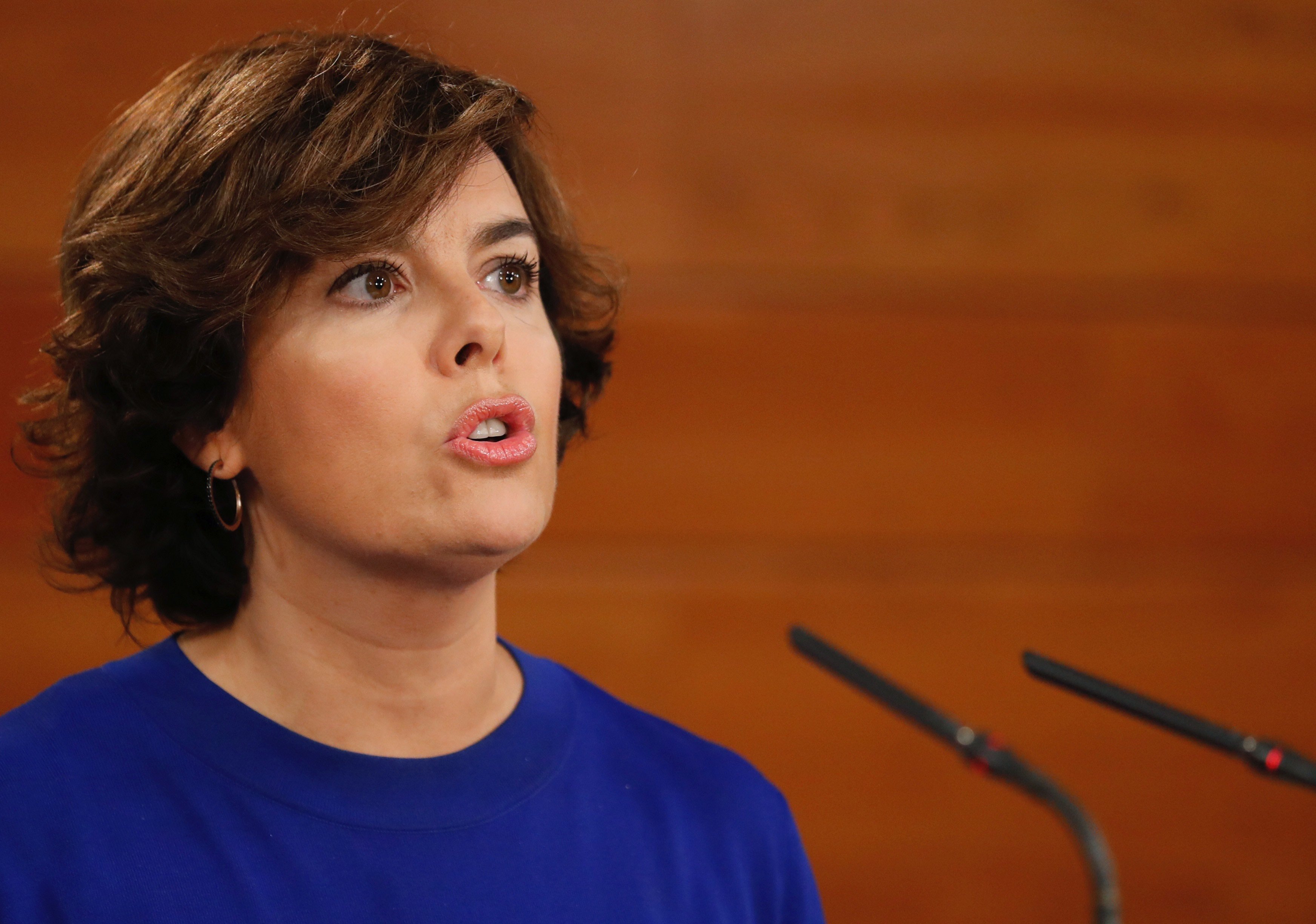The Spanish government has started to sow doubt as to whether responsibility for the organisation of the 1st October referendum could extend to the volunteers as a possible attack strategy to block the ballot boxes. According to government sources, Catalan government officials and civil servants could be responsible for the "preparatory crime", as well as all those "individuals" who might be funding the printing of ballot papers, or the manufacture of ballot boxes and the "school headteachers and staff" who will open their buildings and even those who allow the public to vote on the day of the referendum.
This was announced by Spanish government spokesperson Íñigo Méndez de Vigo in the press conference after today's cabinet meeting. He ambiguously highlighted that "collaboration or participation" in the referendum infrastructure would be cause for responsibility. "Actions will be taken against all the organisers because they'll be responsible for not following the law," he said. Later he added that "the public don't need any warning because they know that they're taking part in a referendum that is illegal." Sources from the Moncloa, the Spanish prime minister's office, say that this wasn't referring to citizens who vote, rather to the organisers, although they didn't specify if that only included the leaders, or everyone. They avoided quoting possible charges they could be accused of.
The doubt spread today by the government following the words of José Manuel Maza, Spain's Attorney General, some months ago, when he didn't discount the possibility of opening criminal proceedings against the volunteers. "The question is more at the limit of what could be a criminal illegal conduct or not. This is a topic to be studied, which I hope to not have to study, but which has to be studied," he said at the time (in Catalan, Spanish linked at top). Later Maza said that he wouldn't think twice about taking action against them, bringing lawsuits if necessary. His words proved counterproductive and led to a wave of people volunteering (in Catalan, Spanish linked at top).
The hypothesis of criminal responsibility was signalled by the Moncloa this Thursday, after Mariano Rajoy's press statement where he said that he didn't "reject any tool" to block the referendum. Sources close to the deputy prime minister then said that all the authorities and civil servants, although they hadn't been notified, were considered cautioned once these requests were published in the Official State Gazettes. This same premise was liable to be extended to anyone who contributed to the referendum.
In this context, De Vigo said that mayors and local councils "will comply with the law" because they've been warned. This was communicated some weeks ago via a letter from the ministry of the Presidency. They will be notified again with another letter, as Rajoy asked the Constitutional Court to do this Thursday. Asked by El Nacional what the Spanish government's opinion was of the more than 60% of local councils in Catalonia that have already promised to offer ballot boxes, the spokesperson asked them to "reconsider and think" because otherwise "they'll have to accept the [legal] consequences".

